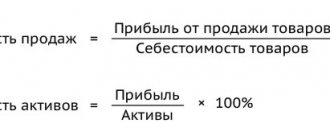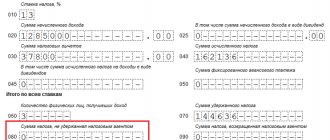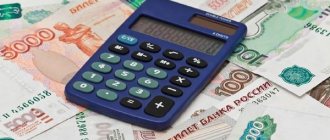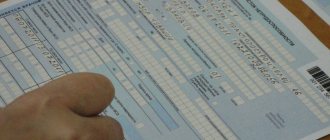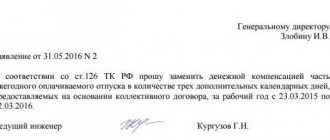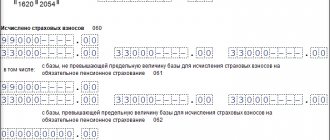Tax is a mandatory part of many financial transactions carried out by companies and firms. Among the proposed types of tax rates, the 0% VAT rate most attracts the attention of taxpayers. It allows you to carry out all operations related to export work, services, and reimbursement.
It is worth recognizing that such a tax rate has its advantages not only for the taxpayer himself, but also for the state. After all, selling goods for export allows you to bring a flow of finance from abroad into the country.
Investment tax deduction
The chapter of the Tax Code of the Russian Federation on income tax has been supplemented with a new article 286.1 of the Tax Code of the Russian Federation, regulating the investment tax deduction. The essence of this benefit is that the taxpayer has the right to reduce the calculated amount of income tax by the amount of expenses associated with the acquisition (creation) or modernization (reconstruction) of fixed assets. To obtain this opportunity, organizations will have to comply with established conditions.
In this regard, the list of controlled transactions between interdependent Russian entities has been supplemented with a new condition: if one of them applies an investment deduction, then the transaction will be controlled. The limit on the amount of income from such transactions between related parties will be from 60 million rubles per year. Fixed assets for which the taxpayer has applied an investment deduction will not be subject to depreciation. In Art. 270 of the Tax Code of the Russian Federation, amendments have been made, according to which expenses for the acquisition, creation, completion, additional equipment, reconstruction, modernization, and technical re-equipment of such facilities will also not be taken into account.
When conducting a desk audit of tax returns in which such a deduction is claimed, Federal Tax Service specialists have the right to demand from taxpayers not only supporting documents, but also explanations.
Sales of goods for export
Situation: is it possible to apply a 0 percent rate if an organization exports goods that are not subject to VAT when sold in Russia?
No you can not.
Any VAT rates (including a 0 percent rate) are used to calculate the amount of tax when selling goods subject to taxation. If an organization sells goods that are exempt from taxation, VAT is not charged. Consequently, in such cases there are no grounds for calculating VAT at any tax rates.
Exemption from taxation provided for in Article 149 of the Tax Code of the Russian Federation applies regardless of where the goods were sold - for export or within Russia. Therefore, when exporting goods exempt from taxation, do not use a 0 percent VAT rate.
Similar clarifications are contained in letters of the Ministry of Finance of Russia dated July 15, 2011 No. 03-07-08/220, dated February 2, 2011 No. 03-07-08/32, dated May 27, 2008 No. 03-07-08/ 127, dated April 10, 2008 No. 03-07-07/42. The legality of this approach is confirmed by arbitration practice (see, for example, decisions of the FAS of the North-Western District dated May 17, 2012 No. A56-35175/2011, of the North Caucasus District dated May 3, 2012 No. A53-8871/2011). And in the resolution of June 24, 2008 No. A14-5018-2007227/34, the FAS of the Central District, considering a similar situation, indicated that the application of a zero VAT rate when carrying out transactions exempt from taxation under Article 149 of the Tax Code of the Russian Federation is possible only if if the organization officially refuses to use the benefit.
The exception is operations for the sale of goods to countries participating in the Customs Union. When carrying out such transactions, the 0 percent VAT rate is also applied to goods, the sale of which in Russia is exempt from taxation. This follows from the provisions of paragraph 3 of Appendix 18 to the Treaty on the Eurasian Economic Union and the letter of the Ministry of Finance of Russia dated October 5, 2010 No. 03-07-08/277. VAT should be charged in the same manner when exporting goods to CIS countries with which intergovernmental agreements have been concluded providing for the application of zero tax rates.
Situation: is it possible to apply a 0 percent VAT rate when selling goods for export whose buyers are foreign citizens? Products are for personal use and are shipped from Russia using international postal delivery service.
No you can not.
Transactions that are subject to VAT at a rate of 0 percent are listed in paragraph 1 of Article 164 of the Tax Code of the Russian Federation. These, in particular, include operations for the sale of goods exported from Russia in accordance with the customs export procedure (subclause 1, clause 1, article 164 of the Tax Code of the Russian Federation). At the same time, the use of a zero tax rate must be justified.
Export to countries participating in the Customs Union
In order to justify the application of a zero VAT rate when exporting goods to countries participating in the Customs Union, a Russian organization, in particular, must collect a package of documents specified in paragraph 4 of Appendix 18 to the Treaty on the Eurasian Economic Union.
One of the mandatory documents that must be submitted to the tax office is the buyer's application for the import of goods with the mark of the tax office of the importing country. Private individuals do not submit such applications. Consequently, the exporting organization will not have such a document, which means it will not be able to justify the right to apply a zero VAT rate.
Export to other countries
To justify the application of a zero VAT rate when exporting goods to other countries, the exporter must collect a package of documents specified in Article 165 of the Tax Code of the Russian Federation. One of the mandatory documents that must be submitted to the tax office is a contract for the supply of exported goods. When transferring goods to the buyer for personal purposes, no supply contracts are drawn up. Consequently, the exporting organization will not have such a document, which means that in this case it will not be able to justify the application of a zero tax rate.
Since the right to a zero VAT rate has not been confirmed, the norms of subparagraph 1 of paragraph 1 of Article 164 of the Tax Code of the Russian Federation cannot be applied when selling goods for personal use to foreign citizens.
In this regard, when selling the following goods for export:
- it is necessary to charge VAT at a rate of 18 or 10 percent if goods are exported, the sale of which in Russia is subject to VAT (clauses 2 and 3 of Article 164 of the Tax Code of the Russian Federation);
- do not charge VAT if goods are exported, the sale of which in Russia is exempt from taxation.
Similar clarifications are contained in letters of the Ministry of Finance of Russia dated June 14, 2013 No. 03-07-14/22219, dated January 25, 2012 No. 03-07-13/01-03.
Situation: is it possible to apply a 0 percent VAT rate when selling goods from a consignment warehouse located in a foreign country?
Yes maybe.
Sales of goods are subject to VAT (including at a rate of 0%), if the place of sale is recognized as the territory of Russia (subclause 1, clause 1, article 146 of the Tax Code of the Russian Federation). In this case, sale means the transfer of ownership of goods from the seller to the buyer (Clause 1, Article 39 of the Tax Code of the Russian Federation).
For VAT purposes, goods are considered sold in Russia if at least one of the following conditions is met:
- the goods are located in Russia and are not moved during sale;
- the goods are in Russia at the time of the start of shipment (transportation).
This procedure is established by Article 147 of the Tax Code of the Russian Federation.
When transferring goods to a consignment warehouse, ownership of them does not pass from the seller (consignor) to the intermediary (consignee). However, it is at this moment that the movement (transportation) of goods intended for sale to buyers of a foreign country begins. The seller transfers title to the goods when the buyer purchases them from the consignment warehouse. Despite the fact that the warehouse itself is located abroad, in the situation under consideration, the territory of Russia is recognized as the place of sale of the goods. Such a transaction is subject to VAT, therefore, a tax rate of 0 percent can be applied to it. Regardless of the fact that at the time the shipment (transportation) of goods began, the purchase and sale agreement was not concluded with the buyer.
Similar clarifications are contained in letters of the Ministry of Finance of Russia dated June 15, 2011 No. 03-07-08/189 and dated April 25, 2008 No. 03-07-08/99. Arbitration practice confirms the legitimacy of this approach (see, for example, decisions of the FAS of the West Siberian District dated June 28, 2007 No. Ф04-3078/2007(34280-А46-37), dated June 5, 2006 No. Ф04-3343/2006 (23299-A03-14), Volga-Vyatka District dated October 31, 2006 No. A43-7918/2006-35-214, Northwestern District dated June 3, 2008 No. A56-36054/2007, dated May 26, 2008 No. A56-12544/2007, dated April 14, 2008, No. A56-17114/2007, dated January 21, 2008, No. A56-1346/2007, dated July 4, 2007, No. A56-48355/2006).
It should be noted that the letters of the Federal Tax Service of Russia dated August 12, 2011 No. AS-4-3/13134 and dated August 9, 2006 No. ШТ-6-03/786 reflect a different position. It boils down to the fact that when goods are shipped from warehouses located abroad, the object of VAT taxation does not arise. At the time of transfer of ownership to the buyer, the goods are located on the territory of a foreign state, so the organization has no reason to recognize Russia as the place of sale. Therefore, the 0 percent VAT rate does not apply to such transactions.
As a rule, when exported to a consignment warehouse, goods are placed under the customs procedure of temporary export (Article 285 of the Customs Code of the Customs Union). This is explained by the fact that the owners of consignment warehouses do not agree to enter into sales transactions due to the presence of risks of further sale of goods to customers. However, a 0 percent VAT rate can only be applied to goods exported under the customs export procedure or placed under the free customs zone regime (subclause 1, clause 1, article 164 of the Tax Code of the Russian Federation). Therefore, when selling goods from a consignment warehouse, the organization is obliged to change the customs procedure for temporary export to the customs procedure for export. This possibility is provided for in Article 289 of the Customs Code of the Customs Union. After changing the customs procedure, the organization will be able to take advantage of the zero tax rate. Moreover, if the customs value of goods declared in the customs declaration when exporting them from Russia differs from the value at which they were sold, a 0 percent VAT rate is applied to the value specified in the contract with the foreign buyer. This is stated in letters of the Ministry of Finance of Russia dated April 6, 2020 No. 03-07-08/19156 and dated September 1, 2010 No. 03-07-08/253.
Situation: is it possible to apply a 0 percent VAT rate when exporting goods in the re-export mode in connection with its return to the supplier? Previously, the goods were imported for release into free circulation.
No you can not.
The sale of goods exported from the territory of Russia under the re-export regime is not mentioned in paragraph 1 of Article 164 of the Tax Code of the Russian Federation. Therefore, it is impossible to apply a 0 percent VAT rate when exporting goods in the re-export mode.
When exporting goods from Russia under the customs re-export procedure, VAT is not paid. Since in the situation under consideration, goods that were imported for release into free circulation are exported from Russia, the amounts of VAT previously paid at customs and accepted by the organization for deduction must be restored (clause 3 of Article 170 of the Tax Code of the Russian Federation). These amounts can be returned to the organization in the manner prescribed by the customs legislation of the Russian Federation. This follows from the provisions of subparagraph 2 of paragraph 2 of Article 151 of the Tax Code of the Russian Federation and Article 301 of the Customs Code of the Customs Union.
Situation: is it possible to apply a 0 percent VAT rate when selling goods (work, services) to a diplomatic mission of a foreign state?
No you can not.
The procedure for applying the 0 percent VAT rate on the sale of goods (work, services) for use by diplomatic (equivalent to them) missions of foreign states, as well as employees of these missions (including family members living with them) is regulated by the Rules approved by the Decree of the Government of the Russian Federation of December 30 2000 No. 1033 (subparagraph 7, paragraph 1, article 164 of the Tax Code of the Russian Federation).
In the situation under consideration, the application of a 0 percent VAT rate means that diplomatic (equivalent to them) missions, as well as employees of these missions (including family members living with them) have the right to a refund from the Russian budget of the amounts of tax paid to Russian organizations when purchasing from them goods (works, services) (clause 3 of the Rules approved by Decree of the Government of the Russian Federation of December 30, 2000 No. 1033). At the same time, Russian organizations supplying goods (performing work, providing services) to foreign representative offices charge them with VAT at a rate of 18 (10) percent or indicate it in invoices. The latter option is possible if the organization is exempt from paying VAT under Article 145 of the Tax Code of the Russian Federation or if the sale of certain goods (work, services) is not subject to this tax (clause 7 of the Rules approved by Decree of the Government of the Russian Federation of December 30, 2000 No. 1033).
To return the paid VAT, representative offices of foreign states must contact the tax office and submit the necessary documents. The procedure for preparing these documents, their composition (depending on the conditions for the purchase of goods (works, services) and the form of settlements with Russian organizations), as well as the deadlines for submission, are determined in paragraphs 8–16 of the Rules, approved by the Decree of the Government of the Russian Federation of December 30, 2000. No. 1033.
Situation: is it possible to apply a 0 percent VAT rate on the sale of goods (work, services) to organizations involved in the preparation and holding of the World Cup?
No you can not.
When selling goods, works or services to the organizers of the 2020 World Football Championship, VAT must be charged in the general manner - at a rate of 18 or 10 percent, depending on the type of product. At the same time, buyers have the right to a refund of VAT that they paid to Russian sellers of goods (works, services). These buyers include:
– International Football Federation (FIFA);
– FIFA subsidiaries;
– confederation;
– Organizing Committee “Russia-2018”;
– subsidiaries of the Organizing Committee “Russia-2018”;
– national football associations;
– Russian Football Union;
– producers of FIFA media information;
– suppliers of goods (works, services) to FIFA specified in the Law of June 7, 2013 No. 108-FZ.
This procedure is provided for in subparagraph 13 of paragraph 1 of Article 164 of the Tax Code of the Russian Federation.
The rules for applying the zero tax rate when selling goods (work, services) to organizations that participate in the preparation and holding of the World Cup (including refund of tax paid) were approved by Decree of the Government of the Russian Federation of August 3, 2015 No. 784. In Paragraph 2 of these Rules stipulates that the named categories of buyers must contact the tax office for a VAT refund. The composition of documents for the return of paid VAT, the procedure for their execution and submission are specified in paragraphs 4–12 of the same Rules.
Please note that the rules were put into effect retroactively - from October 1, 2013 (clause 2 of the Decree of the Government of the Russian Federation of August 3, 2015 No. 784). This means that organizations involved in preparations for the championship can refund VAT paid to Russian suppliers starting from this date.
But all these rules do not apply to Russian suppliers (performers). When selling goods (works, services), they must submit VAT at a rate of 18 (10) percent or prepare invoices with o. The last option is possible if the organization is exempt from paying VAT under Article 145 of the Tax Code of the Russian Federation or if the goods (work, services) sold are not subject to such tax (clause 3 of the Rules approved by Decree of the Government of the Russian Federation of August 3, 2020 No. 784).
Situation: is it possible to apply a 0 percent VAT rate when exporting technical documentation for equipment (installation and operation manuals, drawings, technological diagrams, etc.)? Technical documentation was developed (purchased) in Russia.
Yes, it is possible if ready-made technical documentation purchased for resale from third parties is supplied for export.
The VAT tax rate of 0 percent is applied when selling goods exported under the customs procedure of export or placed under the customs procedure of a free customs zone (clause 1 of Article 164 of the Tax Code of the Russian Federation). For tax purposes, a product is any property sold or intended for sale (clause 3 of Article 38 of the Tax Code of the Russian Federation). Property, in turn, is recognized as any thing, including money and securities (clause 2 of article 38 of the Tax Code of the Russian Federation, article 128 of the Civil Code of the Russian Federation).
Technical documentation can be:
- an integral part of the delivery package (for example, when exporting equipment that cannot be operated without appropriate instructions);
- an independent object of sale (for example, if an organization sells for export documentation acquired (created) in Russia on the instructions of a foreign customer or without a prior order).
In the first case, technical documentation is included in the delivery package. Therefore, its cost is not paid separately (clause 2 of Article 456 of the Civil Code of the Russian Federation) and documentation is not recognized as an independent object of sale. Consequently, when exporting goods with a set of technical documentation, the usual rules for calculating and refunding VAT apply. These rules apply regardless of what product is sold for export:
- purchased for resale (complete with technical documentation);
- manufactured by order of a foreign organization with the attachment of technical documentation, without which the product cannot be used for its intended purpose.
In arbitration practice there are examples of court decisions confirming the legality of this approach (see, for example, Resolution of the Federal Antimonopoly Service of the North-Western District dated June 9, 2006 No. A56-22282/2005).
In the second case, two options are possible:
- ready-made technical documentation purchased for resale from third parties is supplied for export;
- Technical documentation independently developed by a Russian organization at the request of a foreign counterparty is supplied for export.
If the technical documentation was purchased from third parties and the exporter does not have exclusive rights to it, the sale of the documentation for export is considered a sale of goods. With this option, the exporter has the right to apply a VAT rate of 0 percent on a general basis (subclause 1, clause 1, article 164 of the Tax Code of the Russian Federation). Similar explanations are contained in the letter of the Ministry of Finance of Russia dated November 4, 2004 No. 03-04-08/106. Arbitration practice confirms this conclusion (see, for example, resolutions of the Presidium of the Supreme Arbitration Court of the Russian Federation dated May 11, 2010 No. 17933/09, FAS North-Western District dated September 25, 2009 No. A56-22914/2008, dated September 23, 2009 No. A56-12932/2008, dated July 17, 2007 No. A56-33552/2006, dated February 22, 2007 No. A56-35751/2005, West Siberian District dated January 28, 2004 No. F04/409-1695/ A03-2003).
If the exporter is the developer of technical documentation, then its set should be considered as a material documentation of the results of the work performed. The transfer of technical documentation to a foreign counterparty in this case is recognized as the implementation of work (services), to which the provisions of subparagraph 1 of paragraph 1 of Article 164 of the Tax Code of the Russian Federation do not apply. Such transactions are subject to VAT if the buyer of works (services) operates on the territory of Russia (subclause 4, clause 1, article 148 of the Tax Code of the Russian Federation). Since in the situation under consideration the buyer is a foreign organization, these works (services) are not subject to VAT. Therefore, the zero tax rate does not apply in this case. Similar explanations are contained in the letter of the Ministry of Finance of Russia dated November 4, 2004 No. 03-04-08/106. In arbitration practice there are examples of court decisions confirming this position (see, for example, decisions of the FAS of the Volga-Vyatka District dated January 9, 2008 No. A43-10250/2007-44-31, Ural District dated February 8, 2006 No. F09 -189/06-С2, dated August 23, 2005 No. Ф09-3634/05-С2).
Situation: under what conditions can a Russian organization apply a 0 percent VAT rate when selling goods (work, services) to international organizations (representative offices of international organizations) operating in Russia?
The application of a 0 percent VAT rate when selling goods (work, services) to international organizations (representative offices of international organizations) operating in Russia is possible subject to the following conditions:
- tax exemption (application of a 0% VAT rate) is provided for by an international treaty;
- goods (work, services) are sold to an international organization (its representative office) for official use;
- the international organization (its representative office) is included in the list approved by joint order of March 24, 2014 of the Russian Ministry of Foreign Affairs No. 3913, the Russian Ministry of Finance No. 19n.
This procedure follows from the provisions of Article 7, subparagraph 11 of paragraph 1 of Article 164 of the Tax Code of the Russian Federation and paragraph 2 of the Rules approved by Decree of the Government of the Russian Federation of July 22, 2006 No. 455.
When selling goods (performing work, providing services) to international organizations (their representative offices), the Russian organization must issue an invoice indicating the VAT rate of 0 percent, as well as with the note “For the official needs of an international organization.” However, the presentation of such an invoice is possible only if the following documents are available:
- an agreement with an international organization (its representative office) for the supply of goods (performance of work, provision of services) for official use (with a specification of goods (work, services) and an indication of their cost);
- a letter from an international organization (its representative office) confirming the official nature of the use of the goods (works, services) being sold. This letter must be signed by the head of the international organization or its representative office (another authorized person) and certified by a seal. The letter must indicate the name and tax identification number of the Russian organization - supplier of goods (performer of works, services).
If on the date of sale of goods (performance of work, provision of services) the Russian organization does not have these documents, VAT must be charged at a rate of 18 (10) percent.
If you have supporting documents, submit them to the tax office to justify the legality of applying a 0 percent VAT rate. In addition, they must be accompanied by a copy of the payment document (cash receipt order) confirming the actual payment by the international organization (its representative office) for goods sold (work performed, services rendered).
This procedure is established by paragraphs 3 and 4 of the Rules, approved by Decree of the Government of the Russian Federation dated July 22, 2006 No. 455. Similar explanations are contained in letters of the Ministry of Finance of Russia dated July 25, 2008 No. 03-07-08/186, dated January 15, 2008. No. 03-07-07/02, dated December 21, 2007, No. 03-07-07/44, dated August 14, 2007, No. 03-07-03/105.
Submit the entire package of documents to the tax office along with the VAT return (its form was approved by order of the Ministry of Finance of Russia dated October 29, 2014 No. ММВ-7-3/558) for the period in which the Russian organization sold goods (work, services) to the international organization (its representative office). Indicate the tax base for these transactions on lines 020 of section 4 of the declaration for each transaction code (clause 41.2 of the Procedure approved by order of the Ministry of Finance of Russia dated October 29, 2014 No. ММВ-7-3/558).
It should be noted that in some cases the application of a 0 percent VAT rate is unlawful. For example, if a Russian organization provides services to an international organization (its representative office) for renting premises under agreements under which the rent does not include the cost of utilities consumed by the tenant. If an international organization (its representative office) compensates the lessor for the cost of these services, then the lessor has no right to charge VAT (including at a rate of 0 percent). For him, as a subscriber, such an operation is not subject to VAT (letter of the Ministry of Finance of Russia dated March 3, 2006 No. 03-04-15/52, Federal Tax Service of Russia for Moscow dated December 18, 2007 No. 19-11/120973) . If an international organization (its representative office) reimburses the cost of utilities as part of the rent, then the lessor has the right to apply a VAT rate of 0 percent, subject to the conditions established by Decree of the Government of the Russian Federation dated July 22, 2006 No. 455.
A Russian organization can deduct input VAT on expenses associated with the sale of goods (performance of work, provision of services) to international organizations (their representative offices) (Articles 171, 172, 176 of the Tax Code of the Russian Federation, clause 5 of the Rules approved by the Decree of the Government of the Russian Federation dated July 22, 2006 No. 455).
https://youtu.be/j4fFlip_Ftk
Buyers will pay VAT
Legislators approved an experiment to transfer the obligation to pay VAT from sellers to buyers. The idea of the Ministry of Finance is now enshrined in the Tax Code and concerns such areas as:
— sales of scrap and waste of ferrous and non-ferrous metals;
— sales of raw animal skins; sale of secondary aluminum and its alloys.
Organizations and individual entrepreneurs purchasing these goods will receive the status of tax agents. The seller, as now, will issue an invoice. But he will not indicate the amount of VAT in this document; instead, he will make a note that the VAT is calculated by the tax agent. Using such an invoice, the tax agent will be able to accept VAT as a deduction, including the prepayment made. As a result, the buyer will have to calculate VAT payable taking into account the new obligation. If the seller of such goods is not a VAT payer, then he must put o in the contract and the primary document (invoice or act). If such a mark turns out to be misinformation, then in the future the VAT will be paid by the seller himself, and not by the buyer - the tax agent. Individuals have been exempted from the status of tax agents for now.
Documents confirming the right to apply VAT 0%
During the sale of goods and to confirm the right to apply a VAT rate of 0 percent (%), the following package of documents must be provided to the tax service:
- An agreement (copy of an agreement) drawn up between a taxpayer and a person of a foreign state on the possibility of supplying goods outside the common economic zone or the Customs Union. If the contracts contain data related to state secrets, then instead of a copy, an extract from the contract is submitted, which contains the necessary information to enable tax control.
- A bank statement (a copy of a bank statement), which confirms the actual proceeds received from the sale of goods (supplies) to a person of a foreign state into the taxpayer’s account in a Russian bank.
- A customs declaration (or a copy of the customs declaration) with the required marks of the Russian customs service, which released the goods in the export procedure, and the Russian customs service of the place of departure from where the goods were exported from Russia and other territories that are under its jurisdiction.
- A copy of the shipping and (or) other document with the necessary marks from border customs services, which confirmed that the goods were exported outside the Russian Federation or another territory under its jurisdiction.
VAT 0 in what cases? This is a common question.
Separate accounting
Lawmakers changed the “5% rule,” which was in effect for tax periods in which expenses on non-VAT-taxable transactions amounted to less than 5% of total expenses. Now taxpayers are required to keep separate records in this case. True, they still do not need to comply with the proportion to take into account input VAT in deductions and expenses. Now they can deduct all VAT on purchased goods, works or services used for both VAT-taxable and non-VAT-taxable transactions. Until now, it was possible to deduct “all amounts of tax presented ... in the specified tax period.”
If the shipment was in 2020, and payment will be in 2020
This is a completely common situation that will not cause any difficulties. The tax base is determined in 2020. The seller pays the tax, and the buyer takes it as a deduction at a rate of 18 percent. After the transition to 20% VAT in 2020, there will be no problems under such supply contracts: at the time of payment, the tax base will not need to be recalculated, and the increase in the rate will not change the tax obligations of the seller and buyer.
Difficulty can only arise if in 2020 you do not ship all the goods under the contract. Then VAT will need to be charged separately for each shipment on the cost of the goods actually shipped. For those goods shipped after January 1, 2020, a VAT rate of 20 percent will apply.
It is more profitable for the seller to ship the goods before the new year. Whether the buyer pays this year or next, the seller will benefit from the lower tax rate.
There are more excise taxes
Operations for the production of middle distillates (acquisition of ownership), as well as operations for their capitalization as a result of the provision of services for processing raw materials (materials) owned by the organization under the right of ownership, will now be classified as objects of excise taxation. The definition of middle distillates has been clarified, and the procedure for applying tax deductions for operations with middle distillates has been established. The table with excise tax rates for 2018, 2020, 2020 is presented in a new edition.
Personal income tax: benefits and reporting
Legislators exempted from personal income tax:
— compensation from the budget for part of the down payment on a car loan, issued in the manner approved by the Government of the Russian Federation;
— debts of individuals recognized as bad and written off from the organization’s balance sheet. Until now, in accordance with subparagraph 5 of paragraph 1 of Art. 223 of the Tax Code of the Russian Federation, the date of actual receipt of taxable income by an individual was the date of writing off such debts. Now this rule has been preserved only for organizations that are interdependent in relation to the individual taxpayer.
In addition, the procedure for taxing personal income tax on amounts of income received by an individual from the sale of previously acquired securities has changed. Until now, expenses could take into account the amounts on which tax was calculated and paid when purchasing these securities, and the amount of the tax paid itself. By virtue of the new wording of paragraph 13 of Art. 214.1 of the Tax Code of the Russian Federation, now the amount of tax will not be taken into account in the taxpayer’s expenses.
The procedure for submitting a report on Form 6-NDFL has also changed. Now, if reorganized organizations that act as tax agents for personal income tax do not submit 2-NDFL certificates or 6-NDFL calculations for their employees to the Federal Tax Service, then the obligation to report falls on their legal successors. Legislators have expanded the list of errors in case of which 6-NDFL will be considered not submitted.
What are the features of VAT exemption for advances?
According to the Rules for filling out a VAT return, the taxpayer is required to indicate in it only advances received for the supply of goods (work, services) with a long production cycle.
You will have to pay tax on these amounts. At the same time, based on paragraph 1 of Article 154 of the Tax Code of the Russian Federation, VAT is not calculated on advances received for the supply of goods (performance of work, provision of services, transfer of property rights) that:
- are subject to VAT at a rate of 0 percent (clause 1 of Article 164 of the Tax Code of the Russian Federation);
- are not subject to VAT (Article 149, paragraph 2 of Article 146 of the Tax Code of the Russian Federation);
- implemented outside the Russian Federation (Articles 147 and 148 of the Tax Code of the Russian Federation, Letter of the Ministry of Finance dated October 21, 2008 No. 03-07-08/243);
- have a long production cycle and are included in a special government List.
When receiving advances for zero-rated or non-taxable goods, taxpayers do not issue an invoice. In addition, such amounts are not reflected in VAT returns, and therefore are not subject to tax.
Transport tax
The tax on new and expensive cars for organizations will be lower. Lawmakers abolished two increasing coefficients:
— 1.3 — for vehicles put into operation less than two years ago;
— 1.5 — for new cars worth from 3 to 5 million rubles.
Now for the last price category there will be only one increasing factor - 1.1. It will need to be used when calculating transport tax for cars no older than three years.
Cadastral value
After amendments are made to the Tax Code of the Russian Federation, for the purpose of calculating land tax, changes in the cadastral value of a land plot due to new characteristics (type of permitted use, category of land, area) will be taken into account from the day the new information is entered into the Unified State Register of Real Estate.
In addition, legislators retained for another two years the right of local authorities to apply paragraph 4.1 of Art. 75 of the Tax Code of the Russian Federation in regions where a “cadastral” tax on property of individuals has been introduced, give taxpayers a deferment on the payment of penalties. If the corresponding regional law is adopted, penalties on property taxes for individuals will be accrued only from July 1, 2020, and for 2020 - from July 1, 2020.
Delay in submitting documents for VAT confirmation when exporting: what to do
When confirming 0% VAT, it is important to know not only the documents, cases and conditions, but also the deadlines. Currently, the legislation states that the taxpayer must provide the inspection with a customs declaration, contract or copies thereof within 180 calendar days from the date of release of the goods themselves.
If a situation occurs in which the payer did not have time to submit the necessary certificates within 180 days, then taxation will be calculated as 10% or 20% depending on the category of material. The client can submit an updated declaration for the period of time when the goods were shipped to the government agency.
New procedure for recognizing bad debts
The Tax Code clarifies the procedure for recognizing receivables from a taxpayer's counterparty as doubtful debt. Now, if there is a counter creditor - if there are debts to the taxpayer with different periods of occurrence - it will be possible to reduce the debit debt by credit, starting with the first in time of occurrence. In addition, the list of bad debts has been expanded. Legislators included in it the debt of an individual declared bankrupt. Provided that there is a court decision by which he is exempted from further fulfillment of creditors’ claims under bankruptcy law.
Package of documents for the Federal Tax Service
The following documents are provided or submitted to the tax service:
- Copies of the commission agreement, agency agreement or agency agreement of the taxpayer with an attorney or agent are provided.
- An agreement (copy of the agreement) of a person who supplies goods for export at the direction of the taxpayer with a person of a foreign state for the supply of goods outside our country.
- Bank statement (copy of a bank statement), which confirms the actual receipt of funds after the sale of goods to a person of a foreign state to the bank account of the taxpayer or an authorized person (commission agent, agent) in a Russian bank.
VAT 0 in what cases? This interests many. But not everyone knows how to achieve this.
Payment of tax debts by heirs
Legislators freed the heirs of a deceased citizen from paying off his trade tax debt to the budget. Due to the new wording of paragraph 3 of Article 44 of the Tax Code of the Russian Federation, at the expense of inherited property it is now necessary to pay off only the debts of the deceased for transport and all other local taxes (land and property taxes for individuals). This is due to the fact that the payers of the trade tax are not individuals without the status of an individual entrepreneur.
Source: https://ppt.ru
Simple steps to confirm the zero VAT rate
The exporter has the right to decide for himself in what form to submit documents confirming the 0 VAT rate - on paper or electronically through telecommunication channels. On the side of electronic documents – simplicity, speed, accuracy.
It is worth remembering that the electronic format of documents is not free; registers have approved templates.
Don’t “oversleep” submitting a package of documents for 0% VAT, don’t get confused in the forms, the VLSI Electronic Reporting service can help you monitor the accuracy of your reporting.
How to confirm zero VAT in VLSI:
- Step 1. Create a report in the Federal Tax Service register.
- Step 2. Select a form from the “VAT registers” catalog.
- Step 3. On the “Title Sheet” tab, in the “VAT Income Report” field, the name of the file confirming the zero rate must be indicated. After that, select “next” and go to the registry.
- Step 4. Fill in the registry information. Through “Add”, select the registry with the corresponding list of operations.
- Step 5. Send documents to the Federal Tax Service.
- Step 6. Receive an acceptance receipt; without it, the package of documents will not be considered submitted.
- To submit documents via TKS, an electronic signature is required. You can order it in our EDS Store. It's fast, reliable and affordable.
You can learn more about filing reports at the zero VAT rate from our specialists.
Rate this article:

